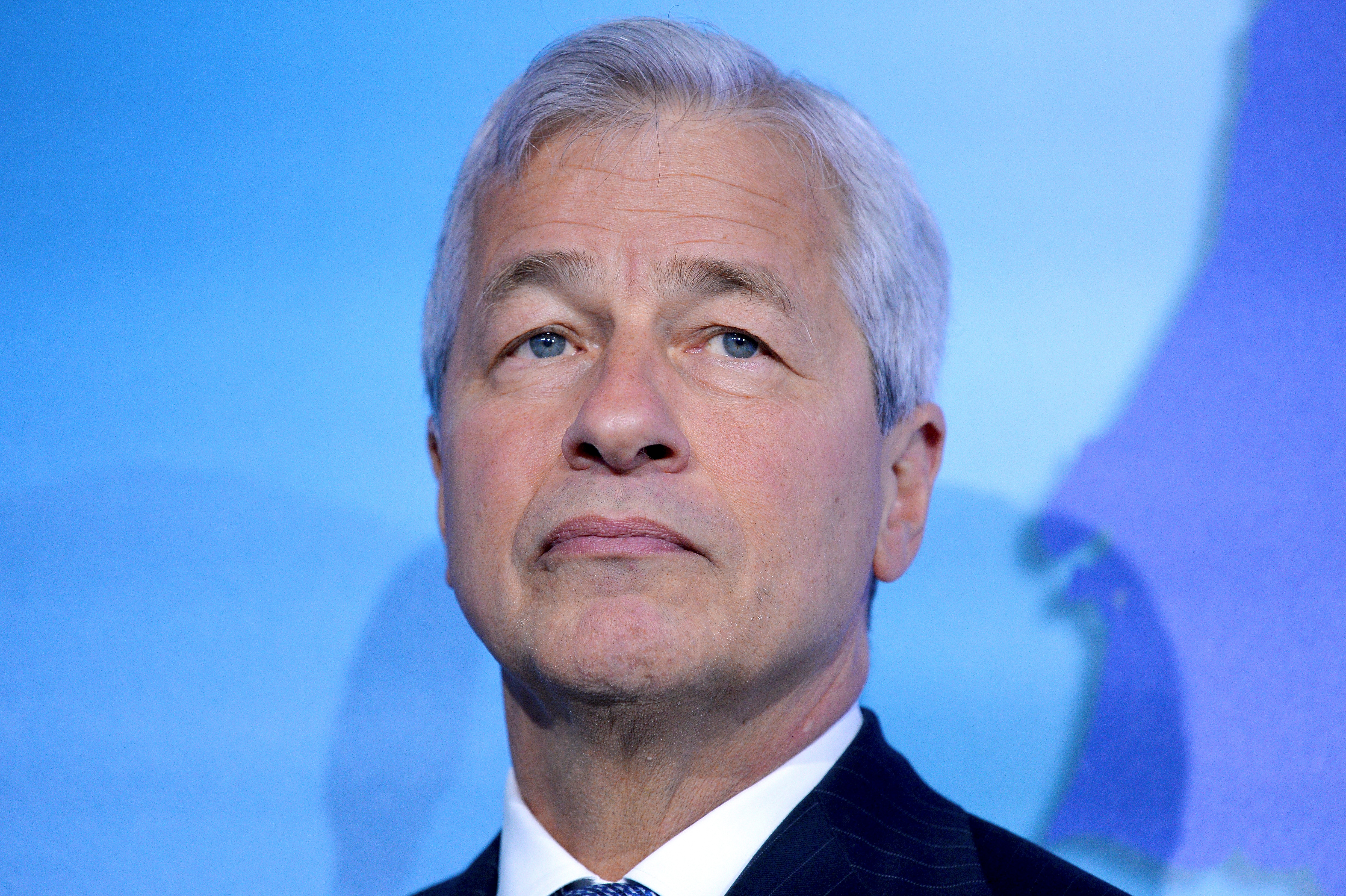US CEO sentiment dips on trade angst
“Business leaders are showing their confidence in the US economy with strong plans for investment and hiring in the months to come,” said Jamie Dimon, chief executive of JPMorgan Chase and the chairman of the Business Roundtable (ERIC PIERMONT)
New York (AFP) – Although CEOs for large US companies remain broadly confident on the economy, sentiment took another hit in the third quarter over concerns about US trade confrontations, according to a survey released Monday.
The survey, released a few hours after new US tariffs on Chinese goods took effect, showed a drop in expected hiring and investment, despite a modest increase in the outlook for sales over the next six months.
The CEO economic outlook index, which includes expectations for sales, capital spending and hiring, fell to 109.3 from 111.1 in the second quarter, according to the Business Roundtable, which represents Apple, IBM, General Motors and other US giants.
The findings come on the heels of a Federal Reserve report earlier this month noting that trade concerns had “prompted businesses to scale back or postpone capital investment.”
A special question in the new Business Roundtable survey found 63 percent of CEOs said recent tariffs and uncertainty about trade would negatively affect capital investment decisions in the next six months.
Still, all three benchmarks remain high by historic levels.
“I think the negative effects are being masked by the overwhelmingly positive effects of the tax and regulatory policies,” Business Roundtable chief executive Joshua Bolten told reporters.
“Almost none of our companies see it as a positive,” Bolten said of the tariffs.
– Urging negotiation –
President Donald Trump’s administration on Monday imposed tariffs on another $200 billion of Chinese imports, meaning half of everything the US buys from China is now subject to additional duties.
Beijing retaliated with tariffs on $60 billion in US goods.
Bolten said his group has repeatedly pressed its case to the White House that the tariffs are harming US business, saying the administration should instead threaten tariffs as a way to coax negotiations, rather than imposing them outright.
But Beijing reportedly called off talks scheduled for this week after Trump followed through with the new punitive import taxes.
“We’ll continue to make that argument and I’m hopeful that the administration will at least remain somewhat receptive to hearing us out on those points,” Bolten said.
Some analysts said China could take other punitive measures in an escalating trade war with the United States, since it cannot retaliate dollar-for-dollar since it imports less.
Such measures could include curtailing US Treasury purchases or singling out individual companies.
Jamie Dimon, chief executive of JPMorgan Chase and chairman of the Business Roundtable, said he does not expect Beijing to target individual companies, although he said some individual Chinese agencies have been known to do that.
“What you should expect from the Chinese is reciprocal, measured responses and not in my opinion an attack on individual companies,” Dimon said.
Disclaimer: This story has not been edited by Siliconeer and is published from a syndicated feed. Siliconeer does not assume any liability for the above story. Validity of the above story is for 7 Days from original date of publishing. Content copyright AFP.


